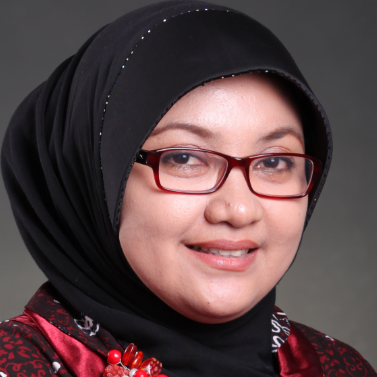International Journal of Information Engineering and Electronic Business (IJIEEB)
IJIEEB Vol. 10, No. 5, 8 Sep. 2018
Cover page and Table of Contents: PDF (size: 489KB)
Design Concept Integration Tax Payment System with Implementing Financial Technology
Full Text (PDF, 489KB), PP.15-22
Views: 0 Downloads: 0
Author(s)
Index Terms
Integration Design, Tax Payment, e-billing, Financial Technology, Service Oriented Architecture
Abstract
Taxation has an important role as state revenue in the State Budget. In 2017, the target of tax revenues in the State Budget is about Rp. 1,498.9 trillion so that the Ministry of Finance of the Republic of Indonesia contrives as well as possible through the fiscal policy reform to fulfill the targets. One of the efforts which undertaken by the Directorate General of Taxes is applied tax payment system using e-billing with the electronic deposit slip. E-billing (electronic billing) is an online service which uses the system through the issued code on a kind of tax payment. The tax payment system is based on self-assessment to make deposits or tax payments independently by the taxpayer. Developments in technology influenced the emergence of innovations particularly financial technology in the finance industry. An industry which worked in the finance sector utilizing financial technology in the payment system. This kind of condition can provide opportunities for financial transaction service electronically. In this research proposed a tax payment system design which can be integrated with financial technology industry through Service Oriented Architecture (SOA) approach. The design which included in this paper is technology architecture, data modeling, use case diagram of service and system integration design. A conceptual design is realized as an effort to utilize financial technology to provide alternative tax payment transactions in achieving the target of state revenue.
Cite This Paper
Mihuandayani, Ema Utami, "Design Concept Integration Tax Payment System with Implementing Financial Technology", International Journal of Information Engineering and Electronic Business(IJIEEB), Vol.10, No.5, pp. 15-22, 2018. DOI:10.5815/ijieeb.2018.05.03
Reference
[1]Admin. (2017, October 15), State Revenue Realization - Ministry of Finance of the Republic of Indonesia. Available online: www.bps.go.id
[2]Admin. (2017, October 17), Reporting Compliance Ratio of SPT – Directorate General of Taxation. Available online: www.pajak.go.id
[3]Mohd Hamdi Irwan Hamzah, Fauziah Baharom, & Haslina Mohd. (2017). A conceptual model for service-oriented architecture adoption maturity model in Zulikha, J. & N. H. Zakaria (Eds.), Proceedings of the 6th International Conference of Computing & Informatics (pp 139-145). Sintok: School of Computing.
[4]Jay DiMare and Richard S. Ma. 2009. Service-Oriented Architecture – Revolutionizing today’s banking systems. IBM Global Business Services. Available: www-935.ibm.com/services/multimedia/SOA.pdf.
[5]Dalal Aljebry, Rizwan Qureshi,"Proposal to Improve Mobility in Service Oriented Architecture", International Journal of Education and Management Engineering(IJEME), Vol.7, No.1, pp.14-24, 2017.DOI: 10.5815/ijeme.2017.01.02
[6]Zakaria Saleh, Rand Obeidat, Yaser Khamayseh,”A Framework for an E-government Based on Service Oriented Architecture for Jordan”, International Journal of Information Engineering and Electronic Business(IJIEEB), DOI:10.5815/ijieeb.2013.03.01
[7]Pawan Kumar, Ratneshwer,”Some Observations on Dependency Analysis of SOA Based Systems”, International Journal of Information Technology and Computer Science(IJITCS), DOI: 10.5815/ijitcs.2016.01.07
[8]S. Basu, F. Casati, and F. Daniel, “Toward web service dependency discovery for SOA management”, in Proceedings of IEEE International Conference on Services Computing, DOI: 10.1109/SCC.2008.45, 2008, Vol. 2 pp. 422-429.
[9]Quist-Aphetsi Kester, Koumadi Koudjo M, Nii.Narku Quaynor,”Integration of Independent Applications and EAI Systems using Service Oriented Enterprise Bus and Open System Application Development Standards”, International Journal of Information Technology and Computer Science(IJITCS), DOI: 10.5815/ijitcs.2013.07.01
[10]A. Meligy, Emad Elabd, Sahar Kotb,"Web Services Privacy Preserving Based on Negotiation and Certificate Authorities", International Journal of Modern Education and Computer Science (IJMECS), Vol.8, No.10, pp.49-55, 2016.DOI: 10.5815/ijmecs.2016.10.07
[11]Annamalai, C., & Ramani, A. V. (2015). Critical Success Factors (CSFs) of Service- Oriented Architecture (SOA) in BIG DATA Systems. International Journal of Research in Management, Science & Technology, 3(3), 23–27.
[12]Karen Avila, Paul Sanmartin, Daladier Jabba, Miguel Jimeno, “Applications Based on Service-Oriented Architecture (SOA) in the Field of Home Healthcare”. 2017. DOI: 10.3390/s17081703. Available Online: http://creativecommons.org/licenses/by/4.0/
[13]Erik-Jan Monshouwer, Raul Valverde,”Architecture for Integration of Point of Sale Terminals with Financial Institutions Through Web Service”, Journal of Theoretical and Applied Information Technology (JATIT), 15th March 2011 Vol. 25 No.1
[14]Adji Sukmana, Mihuandayani et.al, “Design Concepts Smartcoop with Implementing Financial Technology”, 2017 5th International Conference on Cyber and IT Service Management(CITSM),DOI:10.1109/CITSM.2017.8089279
[15]Thomas F. Dapp, 2014 November 11, Deutsche Bank Research, Fintech the Digital Revolution in the Financial Sector.
[16]Papazoglou, M.P., and Georgakopoulos, D. (2003), Service Oriented Computing: Introduction, Communications of the ACM, 46(10), pp. 25-28
[17]Arsanjani, A. Service-Oriented Modeling, and Architecture.Available:https://www.ibm.com/developerworks/library/ws-soa-design1/ (accessed on 25 October 2017).
[18]Tsai, W.-T.; Fan, C.; Chen, Y.; Paul, R.A.; Chung, J.-Y. Architecture Classification for SOA-Based Applications. In Proceedings of the Ninth IEEE International Symposium on Object and Component-Oriented Real-Time Distributed Computing (ISORC’06), Gyeongju, Korea, 24–26 April 2006; pp. 1–8
[19]Hofer, T.; Schumacher, M.; Bromuri, S. Compass: An Interoperable Personal Health System to Monitor and Compress Signals in Chronic Obstructive Pulmonary Disease. In Proceedings of the 2015 9th International Conference on Pervasive Computing Technologies for Healthcare (PervasiveHealth), Istanbul, Turkey, 20–23 May 2015; pp. 304–311

